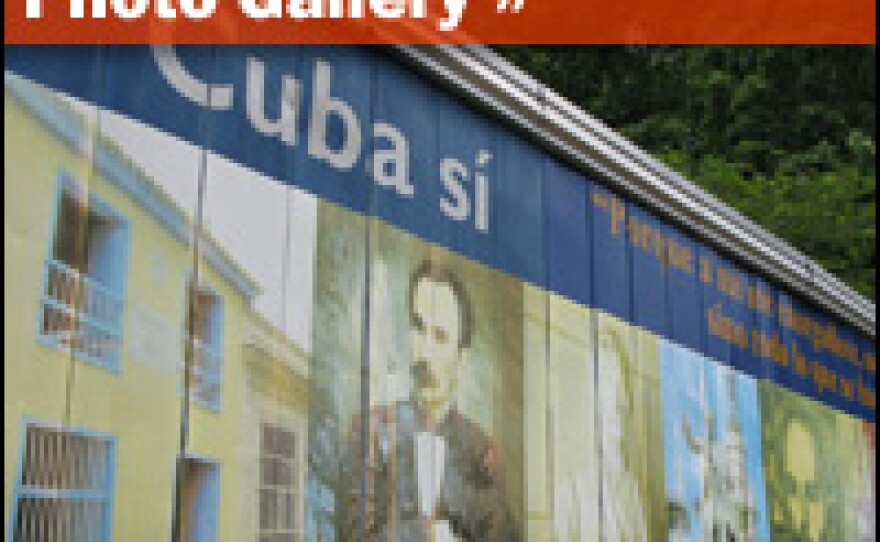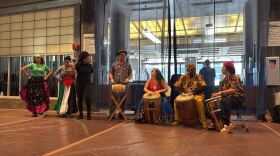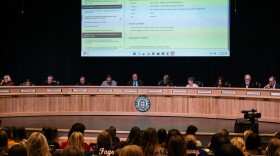Nearly 50 years after revolution brought Fidel Castro to power, Cuba's infrastructure is in shambles. Agricultural production has plummeted, and many ordinary Cubans say daily life has become a struggle to survive and feed their families.
The transfer of power from Fidel to his younger brother, Raul, who was named president in February, has been seen by some on the island as an opportunity for change in one of the world's last communist regimes.
But in a nationally televised speech July 26 to mark the anniversary of the start of the Cuban revolution, Raul Castro offered no new plans to liberalize the economy and warned people of even harder times ahead.
"As much as we want to solve every problem, we can't spend more than we have," he told an audience in the eastern city of Santiago. He warned that Cubans must conserve as much as possible, particularly fuel.
Cubans are often hesitant to talk to foreign reporters, but some say that Raul Castro is going to lead Cuba to a triumphant socialist future. Others say life in Cuba is miserable and they've seen little change since Fidel stepped down.
Frustration is extremely high among professionals.
"The life of a professional who works in this country is pure invention in order to live," says one Havana doctor, who spoke on the condition that his name not be used, saying he could lose his job or even go to jail for criticizing the current system.
Asked if his salary is enough to feed his family, he laughs. "It's impossible," he says. "With that, you can't feed anyone."
This doctor is now in his 60s. He earns 525 Cuban pesos each month, which is just a little more than $20. His wife earns the equivalent of about $15 a month.
Like all Cubans, they get a ration card allowing them to buy staple foods at subsidized prices.
In Cuba, people get paid in the Cuban peso. But there's another currency — the convertible peso, or CUC — which is for tourists and luxury items such as shampoo. The doctor says it's true that education for his children is free, but he still has to buy them school supplies.
"You have to buy backpacks," he says. "You have to buy dinner, notebooks. And all of this you have to buy in CUC."
But he's not allowed to earn CUC, and this poses one of the central conundrums of modern life for millions of Cuban workers: Some of the necessities are only available in a currency you're not allowed to earn.
So this doctor hustles for CUC mainly from people who get hard currency remittances from relatives in the United States. He makes house calls after hours, and at the hospital he has come up with a system to help "expedite service" for people who want his attention right away. He insists he is not paid, but patients give him small gifts — usually CUC or food — as a token of their appreciation.
"I wake up thinking, what am I doing today? Who am I going to see?" he says. "What are they going to give me to help me get through the day?"
He says if each day he can make an extra 10 or 15 CUC, roughly $10 or $15, he is a happy man.
Raul Castro has suggested raising the salaries of doctors and other professionals, but this doctor says he'll believe it when he sees it.
Officials say that progress is being made to rebuild roads, repair water systems and increase agricultural production. Tourism also is growing, and Raul Castro says a new oil production plan should help meet more of the island's fuel needs. A request by NPR to speak to a government economist in Havana went unanswered.
Yoani Sanchez, who writes a blog out of Havana called Generation Y, says many young Cubans were expecting more — and more significant — changes from Raul Castro.
"The problem is that the time has passed," Sanchez says. "As the months have gone by, we haven't seen anything to sustain enthusiasm about the changes."
The new president, for example, allowed Cubans to have cell phones. A two-minute call, however, will cost more than most people earn in a day.
Sanchez says the changes floated by Raul Castro are almost meaningless. She says people want more social freedoms — freedom to express their opinions, to migrate and freedom to work to earn a living.
"Every year that passes," Sanchez says, "means the dreams of having your own home, having a salary with which you can maintain a family — particularly with children — are postponed again and again."
In Raul Castro's latest speech to the nation, he didn't talk about fulfilling the dreams of the Cuban people. Instead, he warned that rising global food prices will hit Cuba hard, and he said Cubans must get used to not only hearing good news.
Copyright 2022 NPR. To see more, visit https://www.npr.org. 9(MDAzMjM2NDYzMDEyMzc1Njk5NjAxNzY3OQ001))







